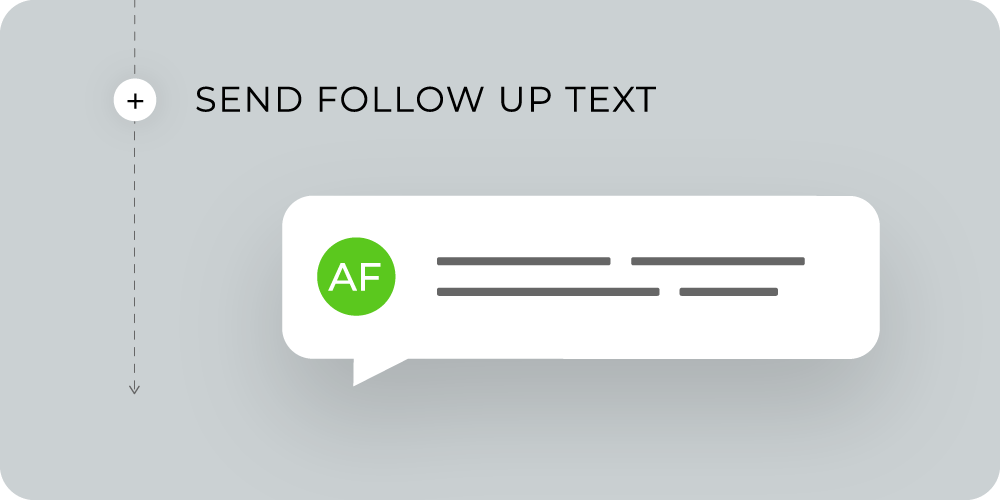Conversational AI Software: 7 Home Services Use Cases
Conversational AI software continues to transform numerous industries across the globe. What once was only an idea is now shaping the face of organizations from start-ups to enterprise organizations.
The home services industry is no exception. And with good reason! Conversational AI software helps home service businesses solve various common problems in this industry, such as high operational costs and limited channels for customer engagement. Conversational AI software helps home service businesses to:
- Cut costs
- Deliver better customer experiences
- Increase productivity and efficiency through automation
Conversational AI tools help professionals in the home services industry solve many common problems that often plague these businesses and cause them to lose customers and money. These include:
- Providing prompt and personalized customer service with limited staff
- Delivering round-the-clock service (because emergencies happen outside of business hours)
- Executing consistent, timely follow-ups and proactive communication with customers and leads alike
- Gaining visibility into customers’ pain points and needs
- Understanding which ads are working to bring in the best leads (& which aren’t!)
Different conversational AI tools can help home services businesses solve many of these common challenges. Some conversational AI platforms are solely focused on supporting customer service, while other software platforms are more marketing attribution-focused. There are also more robust platforms that include not only conversational AI, but other important tools like call tracking, attribution, and turnkey integrations. These all-in-one solutions are an excellent choice for businesses in the home services industry looking for a comprehensive solution.
Finding the one conversational AI tool that’s best for your business depends on your specific challenges and goals. Let’s learn a little more about conversational AI software and its biggest benefits; then we’ll take a look at use cases for the home services industry.
What is Conversational AI Software?

Conversational AI is a ‘subset’ of artificial intelligence (AI) that works by using machine learning (ML) and natural language processing (NLP) to simulate human conversations. Conversational AI can mimic a normal human conversation once you’ve “trained” it with large data sets, like speech and text. Over time, conversational AI learns more from interactions and fine-tunes its responses based on this learning to provide more details in a very conversational manner.
Conversational AI is a great productivity hack; once it’s trained, it can take on tasks typically carried out by employees. For example, conversational AI software can learn and recall customer preferences and provide personalized support outside of normal business hours. This means businesses:
- Don’t have to hire additional customer service representatives for 24/7 service
- Pay for an answering service, or
- Miss business because the customer can’t get in touch.
Conversational AI helps businesses do more with fewer employees and on a budget, allowing them to maximize their customer engagement efforts without spending more than they have in the bank.
And this is just one benefit of conversational AI software! Let’s explore more and you can see which aligns best with your business’s goals.
5 Important Benefits of Conversational AI Software
1. Increase Cost-effectiveness
Every business must invest in cost-effective solutions to their main challenges to succeed. Conversational AI software makes this happen. The range of capabilities these platforms offer is huge, and the more robust, customizable platforms truly offer an all-in-one solution to most marketing, sales, and customer service needs.
Gone are the days of having to look at one platform for one set of data, and then another for a different data set. Advanced AI-powered software allows you to see all of this information in one central hub so you can ditch the tools you’re wasting money on and consolidate your tech stack to deliver the most results.
2. Saves Money
It’s one thing to have a cost-effective solution, but it’s another to save money. This type of software solution can step in to replace some of your customer service reps’ responsibilities and free them up to either help customers with higher-level needs or close more deals.
It also enables businesses to provide support for customers around the clock without hiring more agents or outsourcing roles. Sales reps also benefit from AI-powered lead automation tools.
3. Saves Time
When your customers can connect quickly with your business and get the information they need fast, they’ll reward you with brand loyalty and word-of-mouth recommendations.
Conversational AI tools like chatbots and virtual agents provide real-time assistance when your customer service reps are all busy, or, someone is calling in after normal hours. This saves your customer the time and hassle of having to call back when you’re open or when someone is available.
It also saves customer service agents time when these tools handle tasks like scheduling an appointment, sending reminders or promos, and even setting up routine service calls.
4. Delivers 247 Services

Conversational AI software can provide personalized, round-the-clock service. In the home services industry, this is vital. If a pipe breaks at 2 am no one will want to wait to get in touch with a plumber until the next day. They need immediate attention and virtual agents and chatbots make this possible.
With more robust platforms, these AI-powered tools can trigger alerts to send a call or text to a manager or someone on call to handle these after-hours emergencies. When you’re there for your customers when they need you the most, they’ll remember.
5. Unlocks Deeper Insights for Personalization and More

Another important aspect of customer service today is the ability to provide a personalized experience for every customer. Conversational AI software enables your customer service reps to have information about the caller at their fingertips. They’ll see:
- Basic demographic information
- All of their past interactions with your company (both online and offline for platforms with call tracking)
- Sentiment and intent from their previous interactions
- What service they are interested in
- Whether they have scheduled an appointment or consult
- So much more
Platforms like CTM allow you to use tools like AskAI to personalize the insights you get. The possibilities are endless with these tools and can be fine-tuned so your teams can see the most important information at a glance. This information lets them tailor conversations and recommendations based on each customer’s specific needs and past interactions. This not only provides a better customer experience but also saves customers time and frustration repeating information.
As you can see there are several benefits that conversational AI software delivers. Here are some of the most beneficial conversational AI software use cases for the home services industry.
7 Conversational AI Use Cases for Home Services
1. Virtual Agents and Chatbots
Virtual agents and chatbots are great ways to use conversational AI software in home services. These tools can provide customers with personalized and prompt service so they don’t have to wait and can connect with your business any time of the day or night.
Whether they need help with tasks like resetting a password, scheduling an appointment, or connecting with live help, these AI-powered conversational intelligence tools can help.
2. Automated Reminders
Sales and customer service reps need to follow up with leads and customers regularly. Data shows that 80% of customers need to be followed up with five times, and 44% of sales reps only follow up one time. This regular, consistent, follow-up is essential to win sales and build long-term customers.
Many conversational AI software platforms let you automate follow-ups like text messages, phone calls, emails, and more. Home service businesses can use this to send maintenance reminders personalized to each customer.
For example, you can send a follow-up text to customers who had decks installed two or three years ago and prompt them to schedule an appointment for a new coat of deck stain to extend the life and enjoyment of their new outdoor living space.

3. IVR Automation
Prompt service is vital for home services to compete. And part of that is getting your caller to the person best suited to help them fast. Advanced, customizable IVR menus help you do just that. Conversational AI software helps determine what the caller needs and match them with the agent, whether a chatbot or a real person, that can provide the best service for their specific needs.
4. Intent and Sentiment Detection Analysis
Conversational AI tools extract important information from conversations like what the intent of the caller is and route calls accordingly. Agents know instantly which callers are ready to take action and which are ‘kicking the tires’. Paired with tools like triggers, this information prompts the next steps like sending a message to an agent to pick up the call for a hot lead or having a manager step in when an angry sentiment is detected.
These tools help provide better customer experiences and support teams to perform at their best.
5. Coaching and Training Opportunities
Conversational AI lets sales and customer service managers unlock the full potential of every employee and every interaction. With real-time coaching abilities and assessing agent performance automatically and at scale, managers can determine which agents perform best and why. They can then train employees on these best practices to convert more leads and drive revenue.
6. Automated Data Collection and Analysis
The information available in customer conversations is a gold mine. But getting this information (who has the time to listen to hours of conversations?) into an understandable, actionable format is time-consuming. Most home service businesses don’t have the time or manpower to do that.
AI-powered conversational intelligence tools and conversation analytics automatically sift through large amounts of data in minutes and provide summaries and answers to the questions you specify. As your business grows, these tools seamlessly scale with you.
For example, you can use a tool like CTM’s AskAI to determine:
- What type of service the caller was interested in
- Is the caller ready to take action now
- Did they schedule an appointment?
- Are they using insurance?
This not only provides actionable insights almost immediately after conversations end, it can also detect patterns, habits, and more information that can aid with tasks like predictive analysis which helps organizations save time and money.
7. Predictive Analysis
This type of business analytics and forecasting is essential to productivity, efficiency, and successful cross-departmental strategies. Armed with vast amounts of data, teams can assign conversational AI tools tasks to determine buyers’ patterns and aid in predictions for many important business areas. Some examples are:
- Which days of the week are the busiest
- What times of the day are the busiest
- Which customers are ready to buy
- What products they’ve purchased in the past and may need to re-purchase
- How many times they’ve used your services, and for what situations
- Their lifetime value as a customer i.e. how much they’ve spent on your products and services
This type of data-backed analysis helps teams to identify and solve risks, and problems–and capitalize on opportunities. For example, you could use conversational AI
software tools to detect patterns concerning questions about a specific feature or tool. Product and development tools can use this information to fine-tune this feature. Additionally, marketing can take a look at these questions and determine if they need to plan more content to address these repeated inquiries.
Conversational AI software helps the home services industries meet the round-the-clock needs of their customers and keep the lines of communication flowing so customers know they can count on you. Explore how conversational AI tools like CallTrackingMetrics’ software can help you outmaneuver your competitors. Book a Demo.